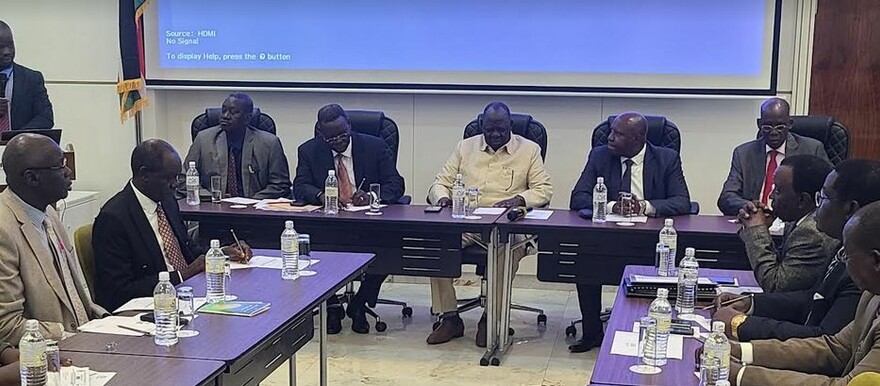The East African Court of Justice (EACJ), in collaboration with the Centre for Public Interest Law (CEPIL), on Wednesday trained 20 Judges and legal counselors from the Ministry of Justice on good governance and rule of law in the East African Community.
Speaking during his opening remarks at Pyramid Hotel in Juba, Justice Nestor Kayobera, the Judge President of the EACJ, said the training aims at offering a clear understanding of how the EACJ operates because many people file cases that would have been handled in-country.
He revealed that the same trainings have been conducted in the other East African countries and that South Sudan is not an exception.
“We discussed this with my brother the Chief of Justice (Chan Reec Madut) the last time we were here but also with the deputy and the other judges here that let us organize this training so that at least you can have the same understanding of the community,” Justice Kayobera said.
He revealed that several people, including lawyers in neighboring Kenya, have been filing cases in the EACJ about South Sudan.
“Because the EACJ is your court, like it or not, people are filing cases against any of the personalities, not from South Sudan but even lawyers from Kenya. Many cases which have been filed against the Government of South Sudan are not filed by lawyers from South Sudan alone but by lawyers from the East African personalities,” he stated. “So, we thought it better, after the Republic of Burundi, Rwanda, Kenya, and the Republic of Tanzania, that we also come to South Sudan. Not to teach you, we have nothing to teach you but to share experiences. And also we share about the rules or procedure of our court.”
Justice Kayobera further disclosed that the EACJ is considering establishing a sub-registry in Juba to reduce the burden of traveling up to Arusha, Tanzania.
“We thought it better to establish this sub-registry after having interacted with the judges and the Minister of Justice. In some countries, when they established the sub-registry, they thought we were campaigning so that the people could file cases against their governments, which was not true. So, we thought it is better we also understand,” he clarified.
Several South Sudanese have recently been going to the East African Court of Justice because they claim that the judiciary in the country is not independent.
The judge president also disclosed that the South Sudanese lawyers in the EACJ are doing well compared to when the country first joined.
For his part, Isaac Gabriel Awou, the undersecretary of the Ministry of Justice and Constitutional Affairs, commended the EACJ for convening the training, saying it was the ministry that requested that judges be equipped on the procedures of the court.
He acknowledged that South Sudan has many cases in the regional court.
“It was our prayer as the Ministry of Justice for this training to kick off because it is already overdue,” he said. “We have conducted several meetings with the EACJ Judge President about the need for us to train our judges about the proceedings of the EACJ.”




